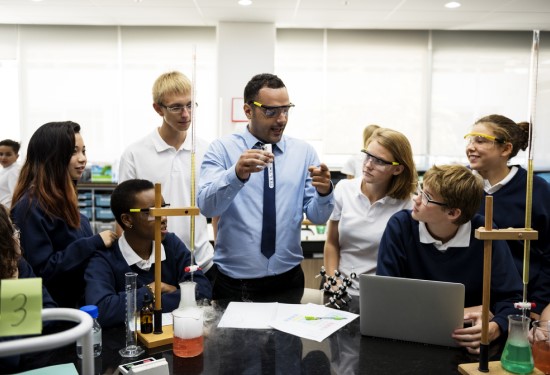News
2023 Science Teaching Survey unveils key challenges in UK science education
- Details
- 02 February 2024
In a collaborative effort with the Institute of Physics (IOP) and the Royal Society of Chemistry (RSC), the Royal Society of Biology (RSB) conducted the 2023 Science Teaching Survey, delving into the landscape of science education in the UK. This extensive survey, which garnered responses from over 2,900 educators, including 827 biology teachers, offers a comprehensive look into the challenges and aspirations of science educators across the UK and the Republic of Ireland.

The survey results, cut for biology specialists, found that addressing the challenges of teacher attrition and dissatisfaction requires a multifaceted approach. Teachers express the need for curriculum reform, workload management, professional development opportunities and teaching in the area of their subject specialism.
Prevalent challenges faced by science teachers across nations, school types, and career stages, as identified in the survey, include student behaviour (62%), limited literacy skills (52%), and limited numeracy skills (49%) as the top three concerns. Mainstream secondary schools, in particular, grapple with challenging student behaviour, highlighting the need for strategies to enhance classroom management.
In addition, a considerable percentage of educators feel insufficiently supported with subject-specific professional development (SSPD), with biology and physics educators reporting the highest insufficiency at 38%. Barriers to accessing SSPD include issues like having to attend professional development in their own time, highlighting the need for more accessible and tailored opportunities.
The data also exposes a lower confidence level (45%) among educators in providing information on technical/vocational routes into scientific careers. This indicates a potential area for support and training to help educators guide students on non-academic pathways in science.
The RSC Science Teaching Survey 2023 provides a nuanced understanding of the challenges and opportunities faced by biology educators. As the education landscape evolves, addressing regional variations, supporting subject-specific needs, and implementing teacher-centric strategies will be pivotal for fostering a resilient and satisfied teaching workforce in secondary education.
The Royal Society of Biology calls for collaborative efforts to tackle these issues and invites educators and stakeholders to contribute to this by joining our Teaching Policy Advisory Group and Teaching Policy Network. Please email shabana.brightley@rsb.org.uk for further details.

